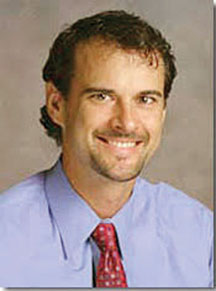Dr. Magryta: Why is sleep important, part 2
Published 12:00 am Sunday, April 28, 2019

Dr. Magryta
So far we know that humans at all ages will suffer from memory dysfunction and brain sewage cleanup problems leading to inflammation and damage long term.
What ages are most at risk? Teenagers, infants and toddlers are rapidly growing creatures requiring more macro/micronutrients, water, and toxin avoidance. It is likely that sleep follows these same principles.
When I think of mood and resilience, it does not take rocket science to know that toddlers need naps and teens and adults function better when they are well rested.
The Journal BMC Public Health states: “Longer sleep duration was generally associated with better body composition, emotional regulation, and growth in children aged 0 to 4 years. Shorter sleep duration was also associated with longer screen time use and more injuries.” (Chaput et. al. 2017)
In one study, they noted teens were almost 20 percent sleep deprived and almost 40 percent had sleep issues resulting in significant increases in health complaints, including headaches and fatigue. (Paiva et. al. 2015)
Sleep deprivation and car accidents. From BMC Medicine: “Severe sleep apnea was associated with a 123 percent increased crash risk, compared to no sleep apnea. Sleeping 6 hours per night was associated with a 33 percent increased crash risk, compared to sleeping 7-8 hours per night. These associations were present even in those who did not report excessive sleepiness. The population-attributable fraction of motor vehicle crashes was 10 percent due to sleep apnea and 9 percent due to sleep duration less than 7 hours.” (Gottlieb et. al. 2018)
Teenagers need sleep. Later school start times have been discussed with lots of pushback from administrators and parents. Dr. Wheaton and colleagues noted: “Saw a significant increase in sleep duration even with relatively small delays in start times of half an hour or so. Later start times also generally correspond to improved attendance, less tardiness, less falling asleep in class, better grades, and fewer motor vehicle crashes.” (Wheaton et. al. 2016)
Poor sleep is associated with hypo-functioning immunity against disease. Specifically there is reduced function in the innate immune system that recognizes and kills pathogens, protects against cancer and controls the first stages of inflammation. (Irwin et. al. 1994) (Irwin et. al. 2017)
From a public health perspective, sleep is a major determinant of health for all ages and should become a national priority especially as it relates to motor vehicle use, school function and long term disease amelioration.
Knowing this new science makes this next part all the more problematic: in the Journal JAMA Pediatrics, Dr. Czeisler wrote a piece titled “Problems associated with use of mobile devices in the sleep environment – streaming instead of dreaming.”
This article states, “the mere presence of a mobile device in the sleeping environment at bedtime, and certainly its use, increases the risk of inadequate sleep quantity, poor sleep quality, and – most important – excessive daytime sleepiness the next day in children 6-19 years old.”
Dr. Czeisler noted that when a screen based device is in the sleeping environment, the likelihood of poor sleep and daytime somnolence roughly goes up 2 fold. Do we have a scenario now where media devices are altering our memory pruning mechanism?
Furthermore, we know devices that emit a blue light spectrum wavelength have a negative effect on the release of the sleep-inducing hormone melatonin. These devices are effectively telling the brain that it is NOT time to go to bed despite the fact that the sun is down and we should be winding down into a memory-consolidating slumber.
From my readings for this article, the list of the many physical diseases that are related to altered sleep and circadian rhythms includes cardiovascular disease, cancer, obesity, diabetes, reduced immunity, attention disruption and much more.
I cannot think of a single reason why my children need a single device in their sleep environment at night. We choose to keep all devices in a docking station in the main area of our house where they sit unused at night.
Sleep for children is critical.
Dr. M
See https://www.salisburypediatrics.com/patient-education/dr-magryta-s-newsletter for sources


